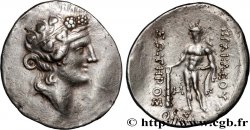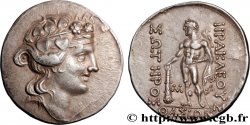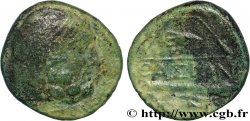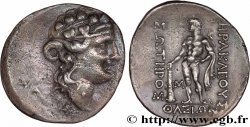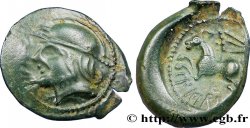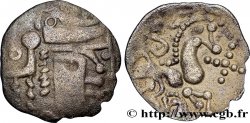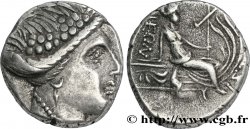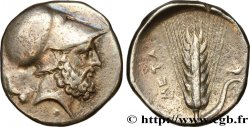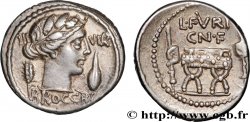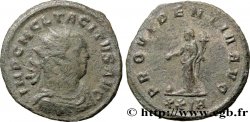Live auction - bgr_946989 - THRACE - THRACIAN ISLANDS - THASOS Tétradrachme
You must signin and be an approved bidder to bid, LOGIN TO BID. Accounts are subject to approval and the approval process takes place within 48 hours. Do not wait until the day a sale closes to register. Clicking on "BID" constitutes acceptance of the terms of use of cgb.fr private live auctions.
Bids must be placed in whole Euro amounts only. The sale will start closing at the time stated on the item description; any bids received at the site after the closing time will not be executed. Transmission times may vary and bids could be rejected if you wait until the last second. For further information check the Live auction FAQ
All winning bids are subject to a 18% buyer’s fee.
All winning bids are subject to a 18% buyer’s fee.
| Estimate : | 600 € |
| Price : | 340 € |
| Maximum bid : | 350 € |
| End of the sale : | 24 September 2024 14:13:00 |
| bidders : | 2 bidders |
Type : Tétradrachme
Date: c. 150-120 AC.
Mint name / Town : Thasos, Thrace
Metal : silver
Diameter : 33 mm
Orientation dies : 12 h.
Weight : 16,61 g.
Coments on the condition:
Flan large, centré des deux côtés. Très beau portrait de Dionysos ainsi qu’un revers bien venu à la frappe. Patine grise avec de légers reflets dorés
Catalogue references :
Obverse
Obverse legend : ANÉPIGRAPHE.
Obverse description : Tête de Dionysos à droite, portant une couronne de feuilles de vigne et de lierre, les cheveux longs.
Reverse
Reverse description : Hercule nu, la léonté flottant sur l'épaule, debout à gauche, tenant de la main droite la massue ; monogramme dans le champ à gauche.
Reverse legend : HRAKLEOUS // SWTHROS // QASIWN// M
Reverse translation : (Hercule le grand de Thasos).








 Report a mistake
Report a mistake Print the page
Print the page Share my selection
Share my selection Ask a question
Ask a question Consign / sell
Consign / sell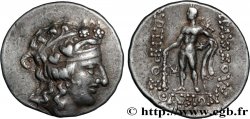
 Full data
Full data
